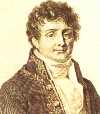Down Syndrome affects many people across the planet and World Down Syndrome Day (WDSD) is an event designed to raise awareness of the rights and inclusion of those born with this common disorder as valued members of the community. The day was first held in 2006 and in 2011 was designated an important occasion by the United Nations General Assembly, with the recommendation that it should be observed on an annual basis.
People with Down Syndrome and those that live or work with them are encouraged to organize events to take part in the day. This can be anything from a fete to a fashion show and those that get involved are free to choose any activity they want. They can register this through the charity organization Down Syndrome International to bring it to the attention of others and become part of the WDSD global community.
This is a wild eagle nest and anything can happen. While we hope that two healthy juvenile eagles will end up fledging from the nest this summer, things like sibling rivalry, predators, and natural disaster can affect this eagle family and may be difficult to watch.
LIVE EAGLE NEST CAM (Washington, DC)

Word of the Day
| |||
| Definition: | (noun) A mixture. | ||
| Synonyms: | mishmash, farrago, hodgepodge, mingle-mangle, oddments, odds and ends, omnium-gatherum, ragbag | ||
| Usage: | The movie was a strange melange of romance, science fiction, comedy, and drama. | ||

Idiom of the Day
bystander effect— A social psychological phenomenon in which the more people there are viewing a crisis or crime, the less likely they are to offer aid to the victim(s). Also known as bystander apathy |

History
| |||
 | Founded in Iran in the mid-19th century by Baha' Ullah, Bahá'í is a religion based on the unity of all faiths. Adherents pray daily, fast 19 days a year, and follow a strict ethical code. Because of the religion's 19 initial disciples, the number 19 is considered sacred, and the Bahá'í calendar, which began in 1844, consists of 19 months of 19 days, with four additional "intercalary" days. Today is the first day of the 168th year of the Bahá'í Era | ||
| |||
 | Fourier was a French mathematician and Egyptologist. As an engineer on the Egyptian expedition led by Napoleon—who later made him a baron—he conducted anthropological investigations and wrote the preface to the monumental Description de l'Égypte, whose publication he oversaw. In mathematics, he is primarily known for his work in heat conduction and for his use of the Fourier series to solve differential equations | ||
| |||
 | In Japan, where the Vernal Equinox is a national holiday, the entire week during which the equinox occurs is called Higan, which means "other shore." The observance of Vernal Equinox Day began during the reign of 7th-century Prince Shotoku. It became a national holiday during the Meiji period. Visiting the family cemetery is popular on this day, and people tend to regard it as a happy event. Although no meat is served during the week, o-hagi, soft rice balls covered with sweetened bean paste, are popular. Shunbun-no-Hi is a day set aside to honor nature and to show respect for growing things. | ||
| |||
| There's a new addition to the checklist of requirements for life: magnetic shields. On Wednesday, a new study revealed a magnetic field is vital to protect life on a planet from the ravages of a star. READ MORE:http://www.csmonitor.com/Science/2016/0317/Shields-up!-How-Earth-s-magnetic-field-saved-early-life-from-the-sun | |||
1826 - The Rensselaer School in Troy, NY, was incorporated. The school became known as Rensselaer Polytechnic Institute and was the first engineering college in the U.S.
1859 - In Philadelphia, the first Zoological Society was incorporated.
1871 - Journalist Henry M Stanley began his famous expedition to Africa.
1928 - U.S. President Calvin Coolidge gave the Congressional Medal of Honor to Charles Lindbergh for his first trans-Atlantic flight.
1966 - In New York, demolition work began to clear thirteen square blocks for the construction of the original World Trade Center.
1980 - On the TV show "Dallas", J.R. Ewing was shot.
1990 - Australian businessman Alan Bond sold Van Gogh's "Irises" to the Getty Museum. Bond had purchased the painting for $53.9 million in 1987.
1994 - Steven Spielberg won his first Oscars. They were for best picture and best director for "Schindler's List."

DAILY SQU-EEK

If You Were Born Today, March 21
Talented, charming, and likeable, you have such a pleasing manner that you can get ahead in life simply through connections. However, you are not afraid of work and you are terrified of instability. As such, you do whatever it takes to make your life secure, and you have a strong business sense. Your talents are multiple, and it can be hard to find a solid path in life simply because you have so many choices. You have an excellent memory, especially of people. Famous people born today: Matthew Broderick, Rosie O'Donnell, Johann Sebastian Bach, Timothy Dalton.

| Picture of the day | |
 |
A juvenile common sandpiper (Actitis hypoleucos) in Laem Pak Bia, Petchaburi, Thailand. This Palearctic wader breeds across most of temperate and subtropical Europe and Asia, and migrates to Africa, southern Asia and Australian winter.
|

A Brilliant Blush
Photograph by Darcy Ingram, National Geographic
Darcy Ingram made this photo of saguaro cacti in Arizona bathed in the fiery light of a desert sunset. The slow-growing plants store water in their pleats and can weigh more than six tons. A healthy saguaro can live up to 175 years, even in this seemingly unforgiving landscape.

knit, EASTER
knit
Preview by Yahoo
| |||||||
knit
knit
knit
Kansas City Cowl pattern by Kim Guzman
Designer Kim Guzman has created a stunning pattern that does triple duty as a cowl, a wrap and an infinity scarf. The Kansas City Cowl, knit in NaturallyCar...
| |||||||
Preview by Yahoo
| |||||||

crochet, EASTER
crochet
crochet
crochet
crochet
thanks for the rebus riddles, patty

RECIPE

I am stuck in the middle of the hurricane.
CROCKPOT RECIPE

Once in a blue moon
CRAFTS
MINI PLANTERS FROM PLASTIC EASTER EGGS


CHILDREN'S CORNER ... EASTER

PUZZLE

QUOTE




CLEVER
HOW TO FOLD HAMANTASCHEN FOR PURIM

EYE OPENER
Things You Didn't Know about Purim
beginning sundown on Wednesday
By Julie Wiener
With costumes, spiels and lots of drinking, Purim, which this year starts at sundown on Wednesday, March 23, is one of Judaism’s most raucous holidays. You might know about beautiful Esther thwarting evil Haman’s plans, the custom of getting drunk and what hamantaschen are. But we’re guessing there’s a few things about this holiday that might surprise you.
1. Esther was a vegetarian (or at least a flexitarian).
According to midrash, while Queen Esther lived in the court of King Ahasuerus, she followed a vegetarian diet consisting largely of legumes so that she would not break the laws of kashrut (dietary laws). For this reason, there is a tradition of eating beans and peas on Purim. (After all, you’ll need something healthy after all the booze and hamantaschen.)
2. You’re supposed to find a go-between to deliver your mishloach manot, the gift baskets traditionally exchanged with friends and family on Purim.
The verse in the Book of Esther about mishloach manot stipulates that we should send gifts to one another, not just give gifts to one another. As a result, it’s better to send your packets of goodies to a friend via a messenger, than to just give them outright. Anyone can act as a go-between, so feel free to recruit the postal service or even that nice guy in the elevator to help you deliver your gifts.
3. The Book of Esther is the only biblical book that does not include God’s name.
The Book of Esther also makes no references to the Temple, to prayer, or to Jewish practices such as kashrut [keeping kosher].
4. Hamantaschen might have been designed to symbolize Haman’s hat — or his ears or pockets. Or something a little more womanly.
Some say these cookies represent Haman’s ears (the Hebrew name for them, oznei Haman, means just this), and refer to a custom of cutting off a criminal’s ears before his execution. Another theory is that the three corners represent the three patriarchs whose power weakened Haman and gave strength to Esther to save the Jews. Yet another theory: Because the German word tasche means “pouch” or “pocket,” the cookies could signify Haman’s pockets and the money he offered the king for permission to kill the Jews. Finally, in recent years, some feminists have suggested the cookies, which after all, are not dissimilar in appearance to female reproductive parts, were meant to be fertility symbols.
5. In 1945, a group of American GI’s held belated Purim services inside Nazi propagandist Joseph Goebbels’ confiscated castle.
According to JTA coverage at the time, the Jewish chaplain “carefully arranged the candles over a swastika-bedecked bookcase in Goebbels’ main dining room,” and Jewish soldiers explained to their Christian comrades in attendance “about Haman and why it was so fitting that Purim services should be held in a castle belonging to Goebbels.”
6. The Book of Esther, which many scholars theorize is fictional, may be an adaptation of a Babylonian story.
Some scholars argue that the Book of Esther adapted stories about these pagan gods — Marduk becoming Mordecai and Ishtar transformed to Esther — to reflect the realities of its own Jewish authors in exile
7. The Jewish calendar has a regular leap year with two months of Adar (but only one Purim, which falls during the second Adar).
To ensure that the holidays remain in their mandated seasons, the Jewish calendar was ingeniously adjusted to accommodate the 11-day difference between the lunar and solar years. In the 4th century C.E., Hillel scheduled an extra month at the end of the biblical year, as necessary. The biblical year begins in spring with Nissan (Exodus 12:1-2) and ends with Adar. Hillel, in conjunction with the Sanhedrin (Jewish supreme court) chose to repeat Adar (Adar I and Adar II) every 3rd, 6th, 8th, 11th, 14th, 17th, and 19th year over a 19-year period.
8. Purim is celebrated one day later inside walled cities than it is everywhere else.
The Book of Esther differentiates between Jews who lived and fought their enemies for two days within the walled, capital city of Shushan and those who lived in unwalled towns, where only one day was needed to subdue the enemy. The Rabbis determined we should make that same distinction when memorializing the event. Accordingly, if a person lives in a city that has been walled since the days of Joshua (circa 1250 B.C.E.), as Shushan was, Purim is celebrated on the fifteenth of the month of Adar, a day referred to as “Shushan Purim.”
9. Just after the 1991 Gulf War, Israel’s most popular Purim costume was of the Israel Defense Forces spokesman whose face appeared on TV every time a Scud missile alert sounded — and people snacked on “Saddamtaschen” instead of hamantaschen.
Spokesman Nachman Shai’s “reassuring tones earned him the sobriquet ‘National Valium,’” while Israel was being pelted with Iraqi missiles, according to a JTA report at the time. That year, while many costume-makers avoided the temptation to make Saddam Hussein costumes (it would be like a Hitler costume, one vendor told JTA), bakeries hawked “Saddamtashen,” which “look and taste exactly like Hamantashen.”


























Remembering spring days with our kids (goats)--such exuberant lovers of life:)
ReplyDelete